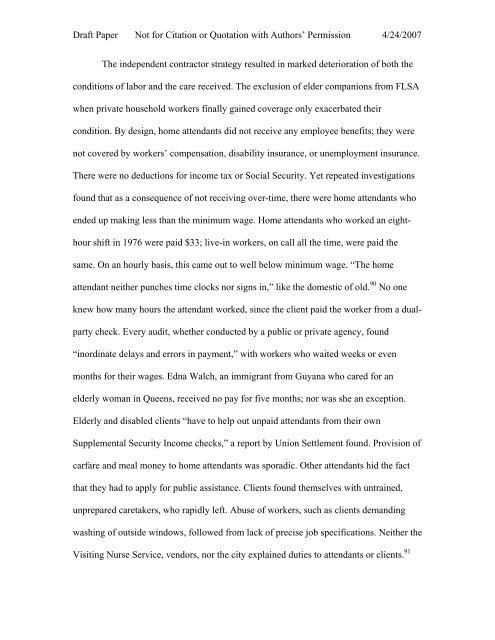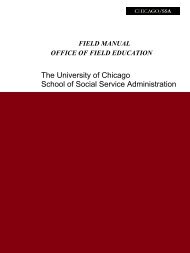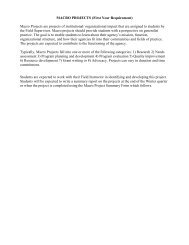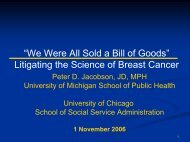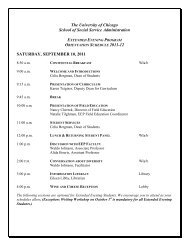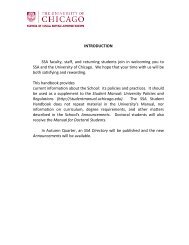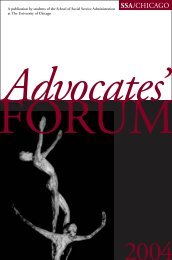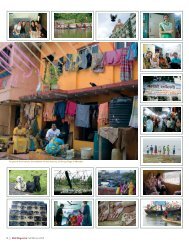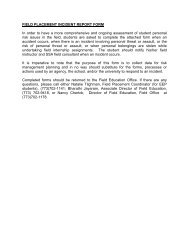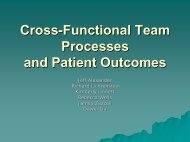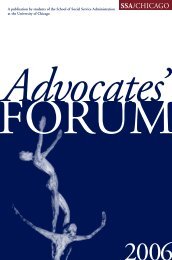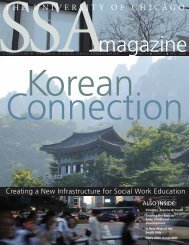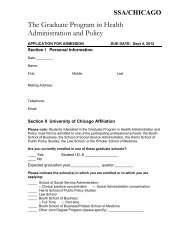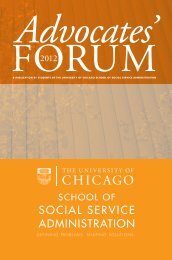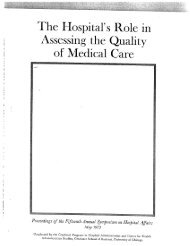Organizing Home Care: - School of Social Service Administration
Organizing Home Care: - School of Social Service Administration
Organizing Home Care: - School of Social Service Administration
Create successful ePaper yourself
Turn your PDF publications into a flip-book with our unique Google optimized e-Paper software.
Draft Paper Not for Citation or Quotation with Authors’ Permission 4/24/2007<br />
The independent contractor strategy resulted in marked deterioration <strong>of</strong> both the<br />
conditions <strong>of</strong> labor and the care received. The exclusion <strong>of</strong> elder companions from FLSA<br />
when private household workers finally gained coverage only exacerbated their<br />
condition. By design, home attendants did not receive any employee benefits; they were<br />
not covered by workers’ compensation, disability insurance, or unemployment insurance.<br />
There were no deductions for income tax or <strong>Social</strong> Security. Yet repeated investigations<br />
found that as a consequence <strong>of</strong> not receiving over-time, there were home attendants who<br />
ended up making less than the minimum wage. <strong>Home</strong> attendants who worked an eighthour<br />
shift in 1976 were paid $33; live-in workers, on call all the time, were paid the<br />
same. On an hourly basis, this came out to well below minimum wage. “The home<br />
attendant neither punches time clocks nor signs in,” like the domestic <strong>of</strong> old. 90 No one<br />
knew how many hours the attendant worked, since the client paid the worker from a dualparty<br />
check. Every audit, whether conducted by a public or private agency, found<br />
“inordinate delays and errors in payment,” with workers who waited weeks or even<br />
months for their wages. Edna Walch, an immigrant from Guyana who cared for an<br />
elderly woman in Queens, received no pay for five months; nor was she an exception.<br />
Elderly and disabled clients “have to help out unpaid attendants from their own<br />
Supplemental Security Income checks,” a report by Union Settlement found. Provision <strong>of</strong><br />
carfare and meal money to home attendants was sporadic. Other attendants hid the fact<br />
that they had to apply for public assistance. Clients found themselves with untrained,<br />
unprepared caretakers, who rapidly left. Abuse <strong>of</strong> workers, such as clients demanding<br />
washing <strong>of</strong> outside windows, followed from lack <strong>of</strong> precise job specifications. Neither the<br />
Visiting Nurse <strong>Service</strong>, vendors, nor the city explained duties to attendants or clients. 91


